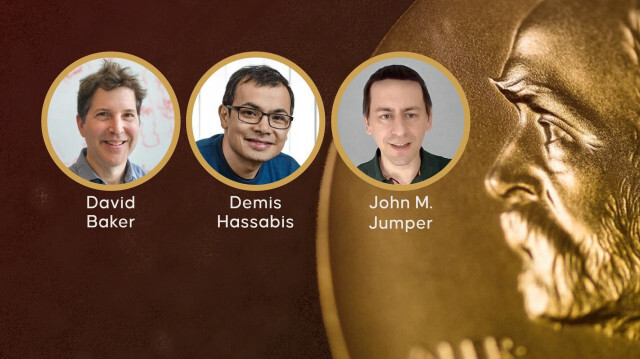
Prize awarded for breakthroughs in protein design and AI-driven structure prediction
The 2024 Nobel Prize in Chemistry was awarded Wednesday to American biochemist David Baker and British scientists Demis Hassabis and John Jumper, recognizing their pioneering work in protein design and AI-based protein structure prediction, according to the Royal Swedish Academy of Sciences.
Baker was awarded half of the prize for his achievements in “computational protein design.” His research, which began in 2003, achieved the previously unattainable: creating entirely new proteins.
Baker's work has since led to the production of numerous innovative proteins, opening up potential applications for pharmaceuticals, vaccines, nanomaterials, and precise molecular sensors.
"David Baker has succeeded with the almost impossible feat of building entirely new kinds of proteins," the Academy stated. His initial designs have spurred a wave of imaginative research, producing unique proteins that could transform various fields in health and technology.
The other half of the prize went jointly to Demis Hassabis, co-founder and CEO of Google DeepMind, and John M. Jumper, also from DeepMind, for solving a 50-year-old scientific challenge: predicting complex protein structures. In 2020, Hassabis and Jumper introduced AlphaFold2, a revolutionary AI model capable of predicting the structures of nearly all 200 million known proteins, according to the Academy.
Since its release, AlphaFold2 has been accessed by over two million researchers across 190 countries, proving indispensable to scientists seeking to understand the biological roles and applications of various proteins.
The Nobel Committee emphasized the global impact of AlphaFold2, describing it as an invaluable resource for advancing biological research on an unprecedented scale.

